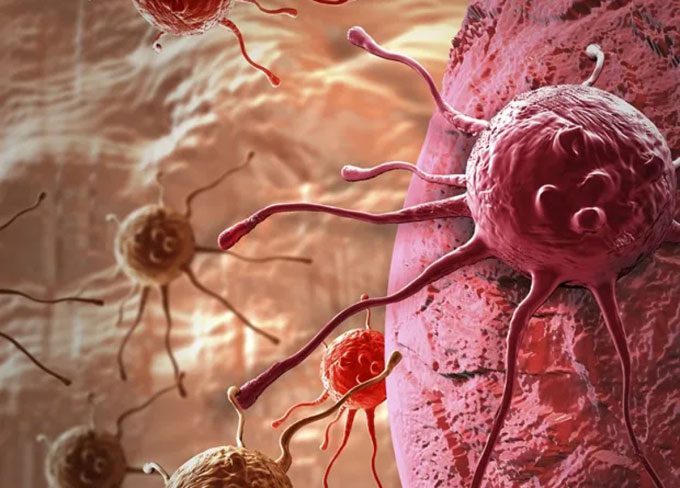Scientists Successfully Develop Nano-Size “Drones” for Targeting Cancer Cells.
A groundbreaking study conducted by Professor Kang Se-byung and Professor Sung Ho Park from the Department of Biological Sciences at the Ulsan National Institute of Science and Technology (UNIST) has been published in the journal Nano Today on December 2.
Natural killer (NK) cells, a type of innate lymphocyte, play a crucial role in the immune response against cancer. Previously, scientists have made numerous efforts to harness the power of NK cells to develop effective cancer therapies. Now, the research team has successfully created ultra-small drones called NKeND that interact with cells to target and destroy cancer.

Illustration of cancer cells. (Image: Industrial News).
The two main tasks of NKeND are to target cancer cells and activate killer cells. Tests on mice have shown that these tiny drones effectively guide cells to eliminate target cancer cells. As a result, tumors were significantly suppressed without notable side effects.
This groundbreaking research presents a new approach to developing cancer-specific cellular agents by utilizing protein-encapsulated nanoparticles and recombinant cancer cell adhesives.
The method holds tremendous potential for selectively treating previously hard-to-cure types of cancer. Professor Kang Se-byung expressed excitement about the research, stating that it paves the way to overcome previous challenges, addressing issues such as the mobility and survival of killer cells.


















































